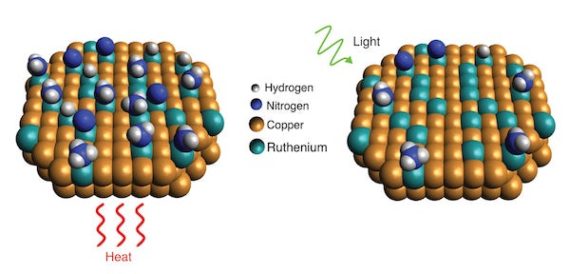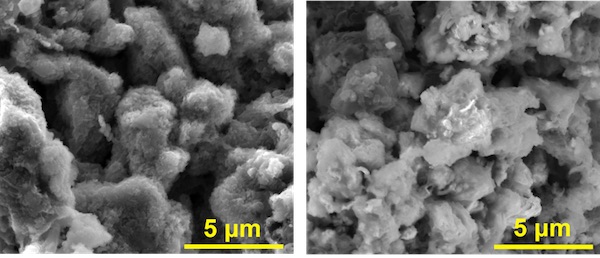Hydrogen continues on its course of always being five to ten years away as a cheap, viable storage mechanism for energy. The ideal of driving a car that emits only water vapor (or flying an airplane that zooms about on a few pounds of H2) seems like an ever-distant dream. Tina Casey, writing for Gas2.com reports on Rice University solution using stinky ammonia that might clear the air for hydrogen, though. She explains that the October 8th celebration of the fourth annual Hydrogen and Fuel Cell Day was great for natural gas stakeholders, since the gas is the primary source today for hydrogen. Her headline indicates this could become a leading way to store and extract H2: “Forget the Hydrogen Economy, Here Comes the Ammonia Economy.” So Desirable. So Hard to Get. Casey explains the big drawbacks to this market – fugitive greenhouse gas emissions and natural gas’s non-sustainable nature. Another factor, the often high cost of producing H2, adds to …
Better Battery Materials – Asphalt?
Asphalt, Graphene, and a Lithium Coating Mike Williams, reporting for Rice University in Houston, Texas, writes, “A touch of asphalt may be the secret to high-capacity lithium metal batteries that charge 10 to 20 times faster than commercial lithium-ion batteries, according to Rice University scientists.” We’ve written about James Tour and his laboratory before. He and his students come up with a plethora of new energy ideas and are able to demonstrate some exciting outcomes. His latest effort mixes asphalt with conductive graphene nanoribbons, and then electrochemically coats the composite with lithium metal to form a battery anode. The anode, when combined with a sulfurized-carbon cathode, was used in full batteries for testing. The results seem a bit incredible, with the ability to charge 20 times faster than commercial lithium-ion batteries. Being able to “refill” your electric car or airplane in five minutes rather than two hours or more would make electric vehicles practical alternatives to their fossil-fuel-powered cousins. After …


